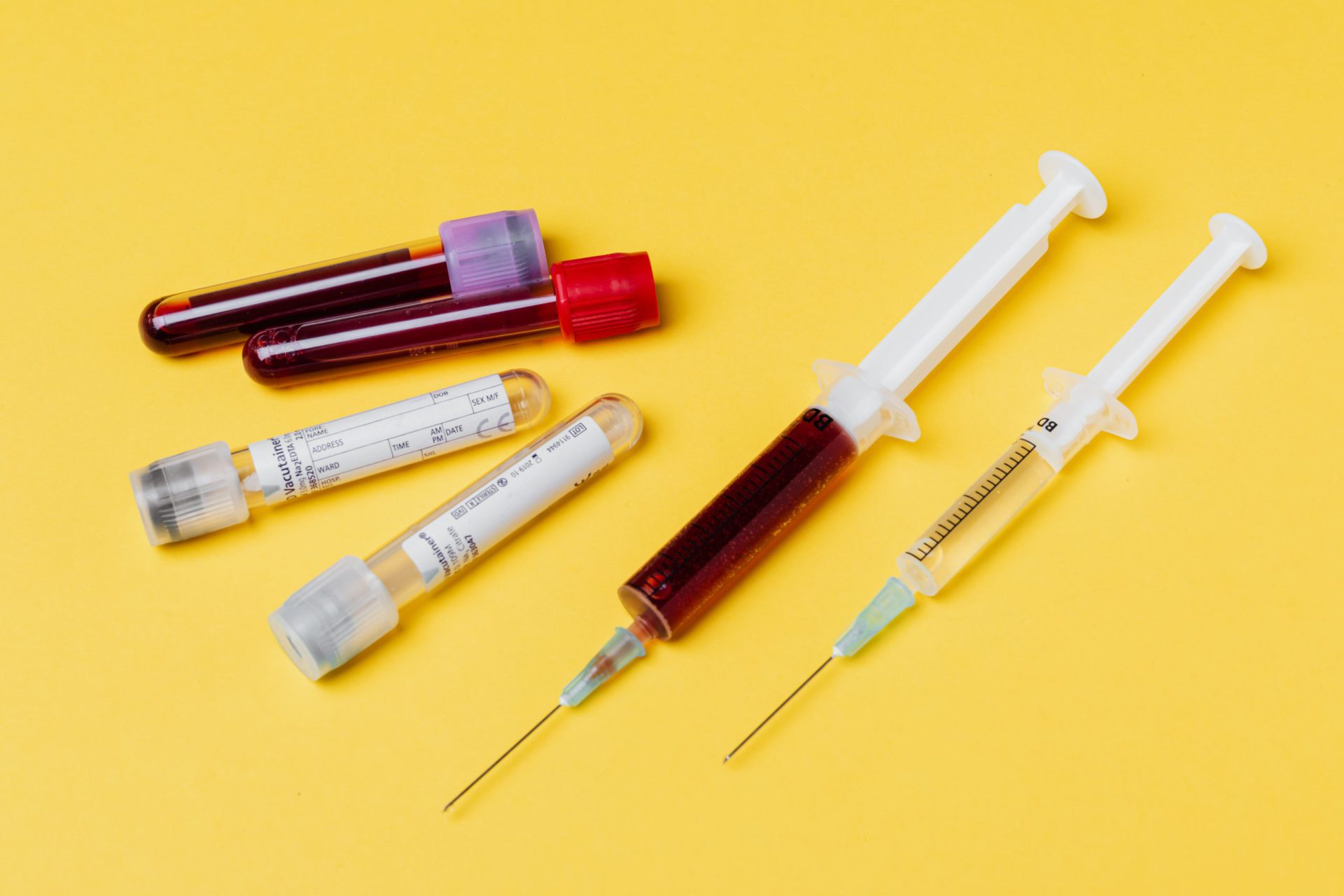Table of Contents

MCH blood test: Did you know your red blood cells contain a vital protein called hemoglobin that carries oxygen throughout your body? The Mean Corpuscular Hemoglobin (MCH) blood test measures the average amount of hemoglobin in your red blood cells and is crucial for diagnosing and monitoring conditions like anemia. Let’s dive into what the MCH blood test is, why it matters, how it’s performed, and what the results can indicate.
What is the MCH Blood Test?
Mean Corpuscular Hemoglobin (MCH) measures the average amount of hemoglobin—the protein responsible for transporting oxygen—in each red blood cell (RBC). Hemoglobin binds oxygen in your lungs and delivers it throughout your body, making this test vital for evaluating red blood cell function and overall health.
When is an MCH Blood Test Needed?
Doctors typically recommend the MCH blood test:
During routine health check-ups
If symptoms like fatigue, pale skin, shortness of breath, or unexplained weakness occur
To diagnose and classify anemia
To monitor existing blood conditions and response to treatments
How is the MCH Blood Test Performed?
The MCH test is quick and straightforward:
A small blood sample is drawn from a vein, typically in your arm
Minimal discomfort; usually takes less than 5 minutes
Sample sent to a laboratory for analysis
No special preparation required unless advised by your healthcare provider
If you have anxiety or fear related to needles or blood, inform your healthcare provider so they can assist you in staying comfortable during the procedure.
Interpreting MCH Blood Test Results
The MCH test measures hemoglobin concentration in picograms (pg) per red blood cell. Normal adult ranges typically fall between 27-33 pg per cell. Deviations from these norms help identify underlying health issues.
Low MCH Levels (Hypochromic Anemia)
Low MCH levels commonly indicate iron-deficiency anemia, the most common form of anemia worldwide. It means there’s not enough hemoglobin per red blood cell, usually due to:
Poor dietary intake of iron
Blood loss from menstruation, ulcers, or gastrointestinal bleeding
Malabsorption conditions such as celiac disease or Crohn’s disease
Symptoms of Low MCH:
Persistent fatigue
Weakness
Shortness of breath
Pale skin
Dizziness or lightheadedness
Treatments for Low MCH:
Iron supplements
Dietary changes
Treatment of underlying health conditions causing blood loss or malabsorption
High MCH Levels (Macrocytic Anemia)
Elevated MCH values suggest red blood cells contain higher-than-normal hemoglobin levels. This can indicate:
Vitamin B12 deficiency
Folate deficiency
Liver conditions
Excessive alcohol consumption
Symptoms of High MCH:
Fatigue and weakness
Cognitive difficulties, such as poor concentration
Numbness or tingling in extremities
Management:
Vitamin B12 or folate supplementation
Dietary changes to include nutrient-rich foods
Reducing alcohol intake
Addressing underlying liver issues
Who Should Get an MCH Test?
Consider getting tested if you experience symptoms such as:
Persistent tiredness
Shortness of breath with mild exertion
Chronic headaches or dizziness
Pale skin or gums
Additionally, individuals with higher risks include:
Pregnant women (due to increased nutrient demands)
Those following restrictive diets (e.g., vegan or vegetarian)
People with gastrointestinal disorders affecting nutrient absorption
Individuals with a family history of anemia or blood disorders
Improving Your MCH Levels Naturally
Adjustments in your diet and lifestyle can positively impact your MCH levels:
Iron-Rich Foods: Incorporate lean meats, seafood, beans, lentils, spinach, and fortified cereals.
Vitamin B12-Rich Foods: Include eggs, dairy, poultry, fish, and fortified plant-based foods.
Folate-Rich Foods: Eat more leafy greens, legumes, nuts, seeds, and citrus fruits.
Limit alcohol intake and practice regular physical activity.
New Developments and Emerging Trends
Recent advancements have made interpreting MCH blood tests more accurate and informative. Automated analyzers provide precise measurements, helping doctors quickly identify deficiencies or abnormalities. Emerging research highlights the importance of monitoring MCH for early detection and prevention of chronic conditions linked to nutritional deficiencies.
Is fasting required before an MCH blood test?
No, fasting is usually not required for an MCH test unless instructed by your healthcare provider.
Can medications affect my MCH test results?
Yes, certain medications, such as chemotherapy drugs or medications affecting vitamin absorption, can impact MCH results. Inform your healthcare provider about all medications you are taking.
How long does it take to get MCH blood test results?
Typically, MCH blood test results are available within a few days.
What is the normal MCH range?
The normal MCH range for adults is generally between 27 and 33 picograms per cell.
Can high or low MCH levels be serious?
Yes, consistently high or low MCH levels can indicate serious underlying conditions such as anemia or nutritional deficiencies. Proper medical evaluation and management are important.
The MCH blood test is a simple and important tool used to measure the average amount of hemoglobin in a person’s red blood cells.
- This test is often performed as part of a complete blood count (CBC) and can help diagnose and monitor certain types of anemia and other blood disorders.
- Understanding the results of a MCH blood test can provide important insights into a person’s overall health and help healthcare providers identify underlying health conditions that may require further testing or treatment.
- However, it’s important to note that MCH levels are just one piece of the puzzle, and additional testing may be necessary to fully understand a person’s blood health.
- Overall, the MCH blood test is a valuable tool for maintaining and improving overall health and well-being.
Stop putting off your health to avoid the doctor offices, long waits, and hospitals. Use Speedy Sticks today allowing you to choose when and where the certificated healthcare professional meets you. We offer convenience, A+ customer service, and comfort with our mobile services.
The MCH blood test is a simple blood test used to measure the amount of hemoglobin in a person’s red blood cells. Hemoglobin is the protein responsible for carrying oxygen from the lungs to the body’s tissues, and its measurement can provide important insights into a person’s overall health. In this blog post, we’ll provide an overview of what the MCH blood test is, how it’s performed, and what the results mean. We’ll also explore the different types of anemia and other blood disorders that can be diagnosed and monitored using the MCH blood test.
Conclusion
The MCH blood test plays a critical role in maintaining your health by diagnosing and monitoring blood-related conditions, especially anemia. Regular check-ups, informed dietary choices, and understanding your blood test results empower you to maintain optimal health. If you’re experiencing symptoms or have concerns about your blood health, consult your healthcare provider about an MCH blood test today.
Where Can You get Tested?
- In addition to the traditional blood draw method, there are now mobile phlebotomy services that provide blood draw services in the comfort of your own home or office.
- This can be a convenient option for people who have difficulty getting to a healthcare provider’s office or who prefer the convenience of having blood drawn at home.
Mobile phlebotomy services, such as Speedy Sticks, offer blood draw services and Mobile Labs, which provide on-site laboratory testing and diagnostics.
Book at Home
Speedy Sticks is dedicated to delivering exceptional mobile phlebotomy services at Speedy Sticks. Our mission is to provide convenience and comfort to our clients through our team of experienced and reliable phlebotomists. We offer high-quality blood draw services right to your doorstep, all while maintaining the utmost professionalism.
Our flexible scheduling options ensure that you receive the care you need at your convenience. Take the first step towards optimal health and experience our phenomenal services today.
Say Goodbye To Waiting Rooms And Long Lines. Speedy Sticks offers at-home testing.

Testimonials


 References
References
MCH: Understanding Your Blood Test Results (health.com)
What Is MCH and What Do High and Low Values Mean? (healthline.com)
MCH levels in complete blood count tests: High and low levels (medicalnewstoday.com)
MedlinePlus: MCH Blood Test: https://medlineplus.gov/lab-tests/mch-blood-test/
Mayo Clinic: MCH: https://www.mayoclinic.org/tests-procedures/mch/about/pac-20384902
American Society of Hematology: Anemia: https://www.hematology.org/education/patients/anemia
National Heart, Lung, and Blood Institute: Iron-Deficiency Anemia: https://www.nhlbi.nih.gov/health-topics/iron-deficiency-anemia
Centers for Disease Control and Prevention: Macrocytic Anemia: https://www.cdc.gov/ncbddd/blooddisorders/types/macrocytic.html








